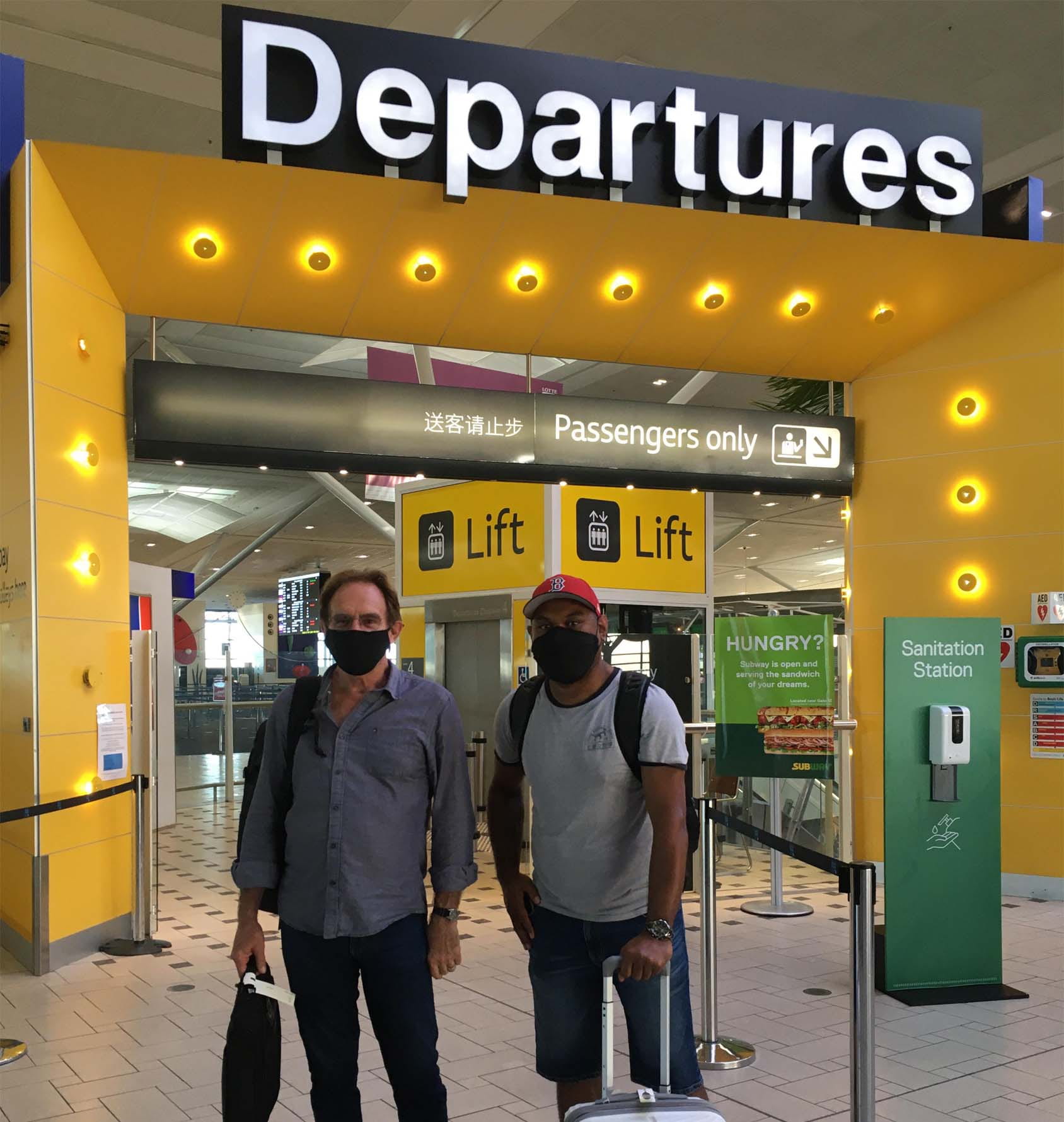The Nauru Teacher Education project has been bringing UNE education to the Pacific island of Nauru for more than 8 years, and it has recently been able to send two UNE lecturers to the island for 3 months.
The Nauru Teacher Education project is funded by the Government of Nauru with the support of DFAT (Department of Foreign Affairs and Trade) in Australia. The project has been bringing education and teaching based degrees to eager students in Nauru through in-person and online teaching since 2013.
However, when the COVID-19 pandemic hit, it became increasingly difficult for UNE lecturers to teach face-to-face on the island. As a result, much of the teaching for the program occurred online over the course of 2020. Although, as of this week two UNE School of Education lecturers, Dr Terry Sullivan and Mr Wili Suluma, were able to travel to Nauru for a 3 month period during which they will be teaching face-to-face with the Nauruan students.
As noted by Professor Pep Baker (Serow), the project’s lead and Research Coordinator for UNE’s School of Education, sending UNE lecturers has always been the preferable method of teaching for this project, as it has proven beneficial to teach in Nauru to create a sense of community between students, their families and UNE.
The project is specifically designed to assist in creating more local teachers, as Nauru has struggled for many years to fill teaching positions locally, leading to a heavy reliance on overseas educators. The project involves supplying eager students with the option to study an Associate Degree of Teaching (Pacific Focus) and an option to further their studies to obtain a Bachelor of Education (Pacific Focus).
There are current 42 Nauruan graduates across these two degrees, showing that the program has been exceedingly successful thus far. This year with in-person teaching returning, an excited cohort of 19 Nauruan students will be studying Education based degrees with UNE in 2021. This year’s cohort includes 13 Associate Degree in Teaching students, 5 Bachelor of Education students and a Masters of Education Majoring in Inclusive Education student.
While online strategies were rolled out across 2020, Dr Serow says she is “excited about having people in Nauru again” and that having in-person teaching will assist greatly as the trimester begins and new students are introduced to UNE’s learning environments. Alongside the teachers, 12 laptops have also been sent for student use and to accompany the pre-existing UNE teaching facilities and student resources on the island.
“Many of the students are first-in-family,” Pep said. “So it is important that taking part in a university course does not isolate them, but instead further connects them with their community and families.” One of the ways that this is achieved is by using the Nauruan curriculum within the teaching content, and providing culturally responsive and appropriate teacher education tailored specifically to a Pacific Island context. Community network activities are also facilitated as part of the program, which give students the chance to share their university experience with their family and communities. For example the students have often held presentations for their families to share the learning that have been undertaking at UNE. This also shares a sense of connection between local families and UNE, creating a mutual connection that nurtures education and learning.
An additional benefit to having lecturers in Nauru is that they are able to undertake research unique research while there. While in Nauru the academics will be collecting data about best practice when delivering education to those in remote locations during the COVID-19 pandemic. This research will provide feedback and shed light on the benefits of universities providing studies to remote communities during the COVID-19 pandemic.
To read more about the Nauru Teacher Education project, you can take a look at the programs details here.




Recent Comments